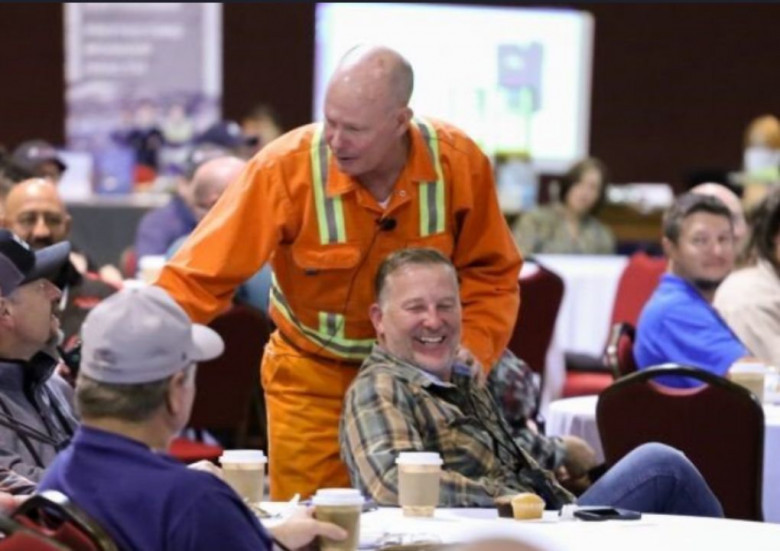views

Ever felt like your safety talks go in one ear and out the other? If you're a safety manager, you've probably seen it: blank stares, people scrolling on their phones, or nodding off mid-speech. That’s a huge red flag. A strong Industrial Safety Speech isn’t just about reading rules from a clipboard. It’s about connecting with your team, keeping them alert, and actually saving lives.
This guide breaks down what every safety manager should know to make those safety speeches stick, without putting people to sleep.
Table of Contents
-
What Is an Industrial Safety Speech?
-
Why Safety Speeches Often Fail
-
Key Elements of a Great Safety Speech
-
Tips to Keep Your Audience Engaged
-
Common Mistakes to Avoid
-
Final Thoughts
-
Key Takeaway
What Is an Industrial Safety Speech?
An Industrial Safety Speech is a short talk or presentation that covers safety rules, practices, and tips in the workplace. These speeches usually happen during safety meetings or toolbox talks. They remind workers of hazards, rules, and how to prevent accidents.
But here’s the deal, just saying the rules out loud doesn’t help much. The goal is to make people understand and care.
Why Safety Speeches Often Fail
Let’s be real. A lot of safety speeches feel like a lecture in a boring classroom. Workers tune out because:
-
The speech is too long.
-
The speaker uses complex words.
-
No real-life examples are shared.
-
It sounds more like a warning than a helpful tip.
If your message doesn’t hit home, people won’t remember it. And if they don’t remember it, they can’t act on it.
Key Elements of a Great Safety Speech
A powerful Industrial Safety Speech isn’t just about facts. It’s about delivery. Use these key elements:
-
Be Real: Share true stories, even ones where mistakes were made.
-
Stay Simple: Use everyday language. Ditch the technical talk.
-
Focus on One Message: Don’t overload people with too much info at once.
-
Use Visuals: If you can, show photos or quick videos. People remember images better.
-
Give Action Steps: Tell workers what to do, not just what not to do.
Tips to Keep Your Audience Engaged
You don’t need to be a rockstar speaker. Just keep things natural and interactive. Try these:
-
Ask Questions: Get the crowd talking. Even simple yes/no questions work.
-
Move Around: Don’t stand like a statue. Walk a bit while you talk.
-
Use Humor: Light jokes or funny examples help people remember key points.
-
Relate to Their Job: Explain how the safety topic connects directly to what they do.
-
Keep It Short: Under 10 minutes is ideal. People lose focus quickly.
Common Mistakes to Avoid
Even with the best intentions, some things just don’t work. Watch out for:
-
Reading Word-for-Word: This makes you sound like a robot.
-
Blaming the Workers: Focus on solutions, not finger-pointing.
-
Talking Too Fast: Slow down. Let the message sink in.
-
Skipping the Why: Always explain why something matters, not just what to do.
The Last WORDS!
Good safety managers focus on people, not just the rules. A smart, engaging Industrial Safety Speech can change how someone sees risk. When done right, it turns into a tool that protects lives and builds a strong safety culture.
Don’t settle for boring speeches. Bring energy, show that you care, and make safety something people want to talk about.
Key Takeaway!
A great Industrial Safety Speech is short, clear, and meaningful. Focus on real-life impact. Speak with heart and purpose. Keep things simple and connect with your crew. That’s how you help your team go home safe, every single day!






















Comments
0 comment